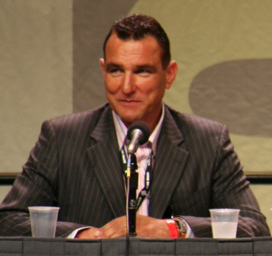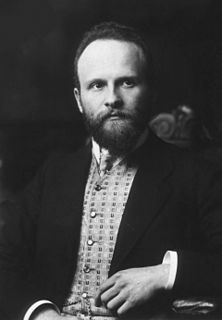A Quote by Catherine Wilson
There is no single test or formula for producing moral progress anymore than there is for generating scientific truths. It is a process involving theoreticians, fact-gatherers, protestors, martyrs for the cause, authors of first- person narratives who change the way we see and evaluate the distribution of harms and benefits.
Related Quotes
vivisection is not the same thing as scientific progress. There is such a thing as scientific progress. But this wholesale dedication of scientists to vivisection, which is the easy and cheap way, actually prevents them from scientific progress, for true progress is difficult and requires genius and imagination in its devoted workers.
The purpose of scientific method is to select a single truth from among many hypothetical truths. That, more than anything else, is what science is all about. But historically science has done exactly the opposite. Through multiplication upon multiplication of facts, information, theories and hypotheses, it is science itself that is leading mankind from single absolute truths to multiple indeterminate, relative ones.
Scientific and technological progress themselves are value-neutral. They are just very good at doing what they do. If you want to do selfish, greedy, intolerant and violent things, scientific technology will provide you with by far the most efficient way of doing so. But if you want to do good, to solve the world's problems, to progress in the best value-laden sense, once again, there is no better means to those ends than the scientific way.
"We hold these truths to be sacred and undeniable" in a draft of the Declaration of Independence changes it instead into an assertion of rationality. The scientific mind of Franklin drew on the scientific determinism of Isaac Newton and the analytic empiricism of David Hume and Gottfried Leibniz. In what became known as "Hume's Fork" the latters' theory distinguished between synthetic truths that describe matters of fact, and analytic truths that are self-evident by virtue of reason and definition.
No civilisation, not even that of ancient Greece, has ever undergone such a continuous and profound process of change as Western Europe has done during the last 900 years. It is impossible to explain this fact in purely economic terms by a materialistic interpretation of history. The principle of change has been a spiritual one and the progress of Western civilisation is intimately related to the dynamic ethos of Western Christianity, which has gradually made Western man conscious of his moral responsibility and his duty to change the world.
You see, I know change
I see change
I embody change
All we do is change
Yeah, I know change
We are born to change
We sometimes regard it as a metaphor
That reflects the way things ought to be
In fact change takes time
It exceeds expectations
It requires both now and then
See, although the players change
The song remains the same
And the truth is...
You gotta have the balls to change
We must work passionately and indefatigably to bridge the gulf between our scientific progress and our moral progress. One of the great problems of mankind is that we suffer from a poverty of the spirit which stands in glaring contrast to our scientific and technological abundance. The richer we have become materially, the poorer we have become morally and spiritually.
The real scientific study of the distribution of wealth has, we must confess, scarcely begun. The conventional academic study of the so-called theory of distribution into rent, interest, wages, and profits is only remotely related to the subject. This subject, the causes and cures for the actual distribution of capital and income among real persons, is one of the many now in need of our best efforts as scientific students of society.
































